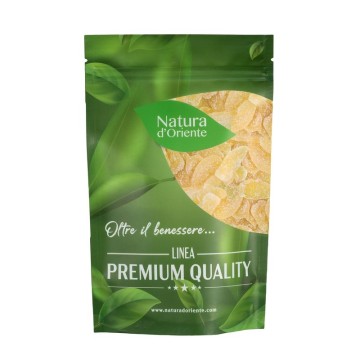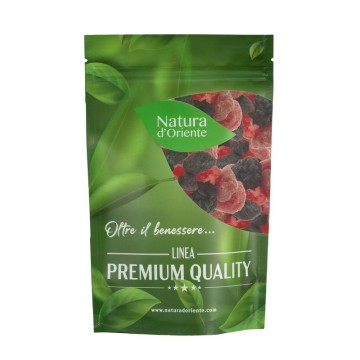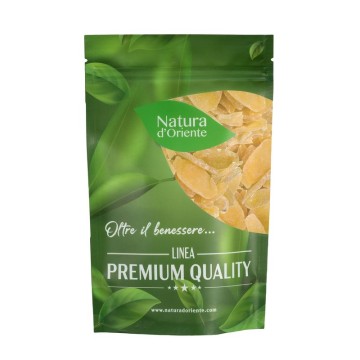Natural dehydrated sugar-free apples
Known and cultivated for millennia for its health properties, the apple gives us valuable nutritional values, and benefits in terms of well-being. Especially in this variety of dried fruit without added sugar, which therefore retains several natural properties.
Natural dehydrated apples: properties and benefits
The many properties of this fruit, which bring well-being to the human body, are balanced by few calories and contraindications - a valid help, therefore, for health. The apple is a precious fruit, thanks to the active ingredients it contains.
Its sour taste, for example, comes from malic acid, which can facilitate the digestion of the meal and help intestinal well-being.
In terms of sugar, each apple is composed of fructose, sucrose and glucose , but has a low glycemic index, due to the good fiber content of the fruit - especially in this version of dehydrated apples without added sugar.
One of the advantages of natural dried apples, in fact, is that it contains a high amount of soluble and insoluble fiber. Taken in the correct quantities, the fibers bring well-being to the digestive system and shorter times for intestinal transit. The insoluble fibers help against constipation, giving a sense of satiety, and "cleaning" the intestine.
soluble fibers help reduce cholesterol, blood sugar and insulin after meals. For this reason, the apple is a fruit that can also be consumed by people with diabetes and has always been associated with a balanced diet.
Natural dehydrated apples contain moderate quantities of vitamins and mineral salts , especially those of group B (B1, B2) and vitamin C, in the pulp.
Dehydrated apples also concentrate pantothenic acid (vitamin B5) and pyridoxine (vitamin B6), which are substances that promote correct energy metabolism, help hormonal balance and nourish the brain, at the level of neurotransmitters.
Other elements present in dried apples are magnesium and phosphorus, which have a calming effect on the nerves and are essential for various functions of our body.
Apple's additional mineral salts include potassium, magnesium, calcium, iron and phosphorus .
Potassium is important for maintaining brain and nervous system functions; sodium to maintain water balance, blood volume and blood pressure; iron helps to create red blood cells, which carry oxygen in the blood to different parts of the body.
In each version, fresh or dehydrated apples, there are many antioxidants present, especially polyphenols. These substances fight the damage caused to cells by free radicals (molecules and atoms emitted by air pollutants, pesticides, alcohol and fried foods).
In addition, in terms of dental hygiene, apples have excellent whitening properties: chewed for a long time helps to clean the teeth after a meal. In addition, the acids present in dried apples clean the teeth and gums, eliminating bacteria during chewing.
Origins and History of cultivation
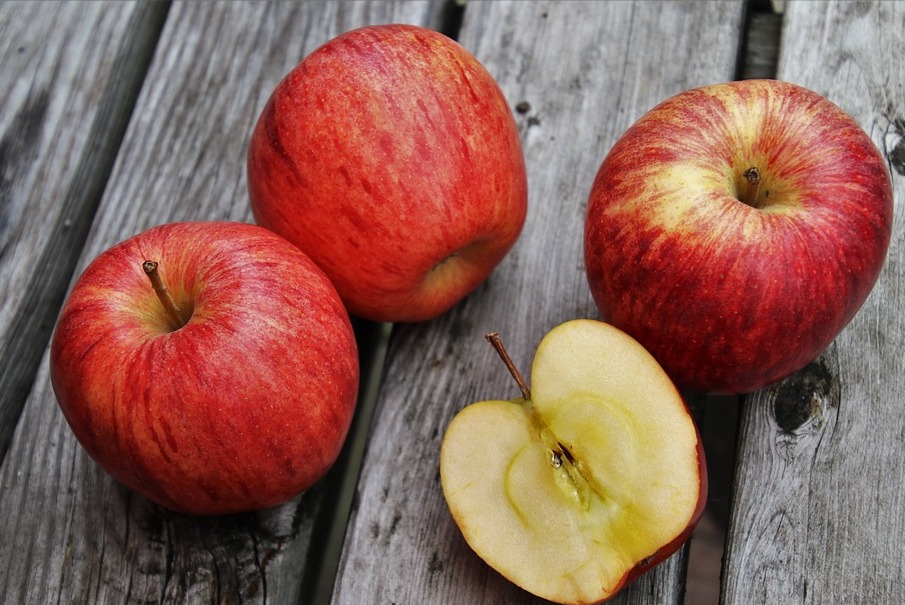 The apple plant, the apple tree, was one of the first to be cultivated by man, already in the Neolithic period. Born in Central Asia, the tree (and its fruit) spread elsewhere across the Middle East: first along the Nile valley in Egypt and, later, on Greek territory.
The apple plant, the apple tree, was one of the first to be cultivated by man, already in the Neolithic period. Born in Central Asia, the tree (and its fruit) spread elsewhere across the Middle East: first along the Nile valley in Egypt and, later, on Greek territory.
The conquests of the Roman Empire spread the apple plant throughout Europe, and cultivation continued successfully in the Middle Ages. The quality of apples grew, grown by farmers and monks, which would have followed a large selection of plants in the Renaissance period.
With the great explorations from the sixteenth century onwards, apple cultivation spread to North America, Australia and New Zealand. Plants imported from Europe led to other crop developments and new varieties.
Today the apple tree is the most cultivated tree in the world, given the fact that the fruits so appreciated in our diet are easily transportable and well preserved.
On a symbolic level, the apple is a fruit known in many legends and stories, in addition to the biblical tradition for which it was this fruit that made Adam and Eve fall into temptation. Over the centuries the apple has become a symbol of love and fertility, also represented next to the Madonna and Child.
Among the legendary apples, there is that of the Swiss hero William Tell, who hit one on the head of his son with an arrow, managing to escape the life. The apple fruit is also present in numerous fairy tales, such as in Snow White by the Brothers Grimm.
In the scientific field, the apple that fell on Isaac Newton's head is famous, making the scientist consider the law of universal gravitation.
In modern symbology we know the Big Apple, nickname of New York, Apple, the apple of the computer company, and Apple Corps, a record company founded by the Beatles.
Plant and Fruit
The plant that gives apples is Malus domestica, a tree of the Rosaceae family, native to Asia and now widespread all over the planet.
The apple is a fleshy fruit with a famous rounded shape and a variable color between red, green or yellow. Furthermore, apples vary in size, shape and acidity depending on the variety.
The apple tree thrives in areas with a temperate climate where there is a distinct winter period; towards the north, cultivation is limited by low winter temperatures and a short growing season.
The soils must be well drained, and apple trees preferably grow on the hills, which allow cold, heavy air to drain into the valley below.
Nutritional values of natural dehydrated sugar-free apples
Natural dried sugar-free apple wedges make some nutrients available to our body, compared to a low calorie content compared to other dried fruit - about 280 kcal per 100 grams. The dehydrated apple is low in fat (0.7%), provides minerals, vitamins, fiber (about 8 g / 100 g) and proteins (1.5 g / 100 g).
Even in the natural version without sugar, in the apple there are potassium (about 400 mg / 100g), calcium (about 20 mg / 100 g), phosphorus (about 35 mg / 100 g), sodium (about 80 mg / 100 mg) and iron (about 1.5 mg / 100 g).
The dietary values of natural apples show good contents of vitamin C (about 4 mg / 100 g) and vitamin K (about 3 µg / 100 g), in addition to Vitamin B-3 (about 0.90 mg / 100 g) ) and Vitamin E (alpha-tocopherol - about 0.50 mg).
Dehydrated apples also make available substances such as riboflavin (vitamin B - about 0.15 mg), pantothenic acid, lutein and zeaxanthin (15 µg) per 100 grams.
How to consume dehydrated natural apples in the kitchen or as a snack
Dried apples are naturally sweet , and become a tasty alternative for a wellness snack. In their version of natural sugar-free apples in wedges, they create convenient snack portions, with a good hunger breaker effect for dieters.
The fact that they are free of added sugars makes them even more useful for various sweet preparations, for decorations of cakes, ice cream, cupcakes, muffins and other pastry specialties.
natural apple wedges can be added to make yogurt, smoothies, dried fruit and cereal mixes tasty for breakfast, or to flavor tea and infusions.
Dehydrated apples can also become part of natural drinks or soft drinks.
Dehydrated apples: side effects and contraindications
Apples are generally safe as food, with little or no side effects.
In any case, they are one of the fruits that trigger allergic reactions in some people when combined with peaches and kiwis. For this reason, even in the natural and dehydrated version, those who are allergic to apples should avoid consuming them.
Dried apples can also cause digestive problems if consumed in large quantities.
Like other nuts, apples contain sugar, although this version of natural sugar-free apples has less of it; for this reason, they are not recommended for those with high blood glucose levels and diabetes.
![]()


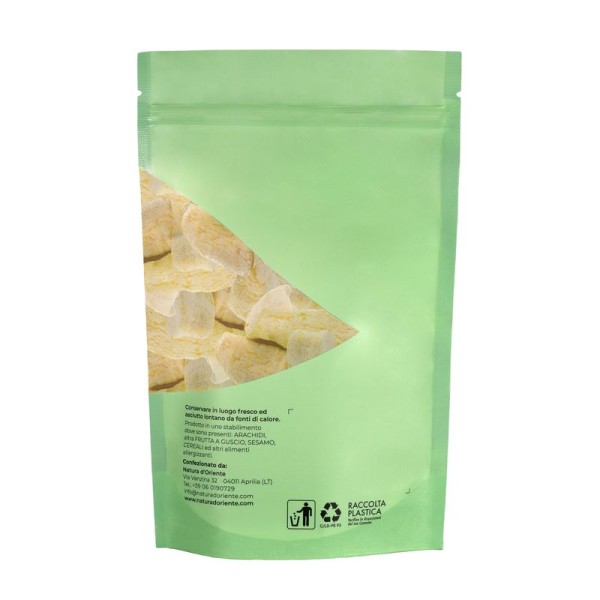




 No reward points for this product.
No reward points for this product.
 The apple plant, the apple tree, was one of the first to be cultivated by man, already in the Neolithic period. Born in Central Asia, the tree (and its fruit) spread elsewhere across the Middle East: first along the Nile valley in Egypt and, later, on Greek territory.
The apple plant, the apple tree, was one of the first to be cultivated by man, already in the Neolithic period. Born in Central Asia, the tree (and its fruit) spread elsewhere across the Middle East: first along the Nile valley in Egypt and, later, on Greek territory.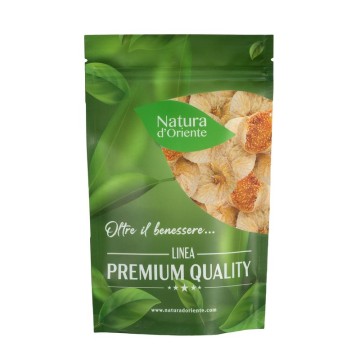
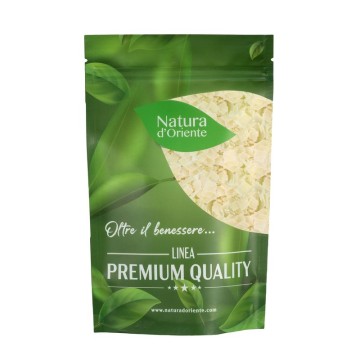
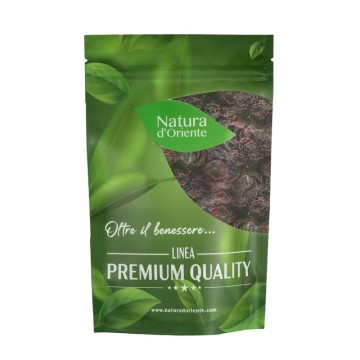

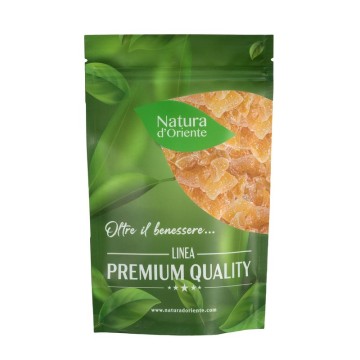
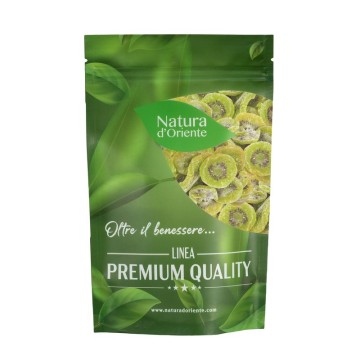
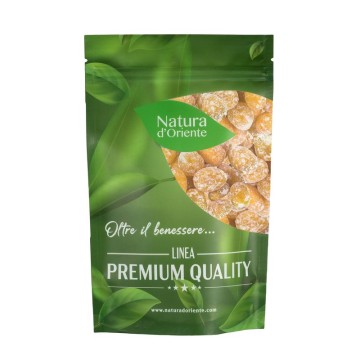

![Natural dehydrated grapefruit without added sugar [NATURADORIENTE]](https://www.naturadoriente.com/10190-home_default/pompelmo-naturale-disidratato-senza-aggiunta-di-zucchero.jpg)
